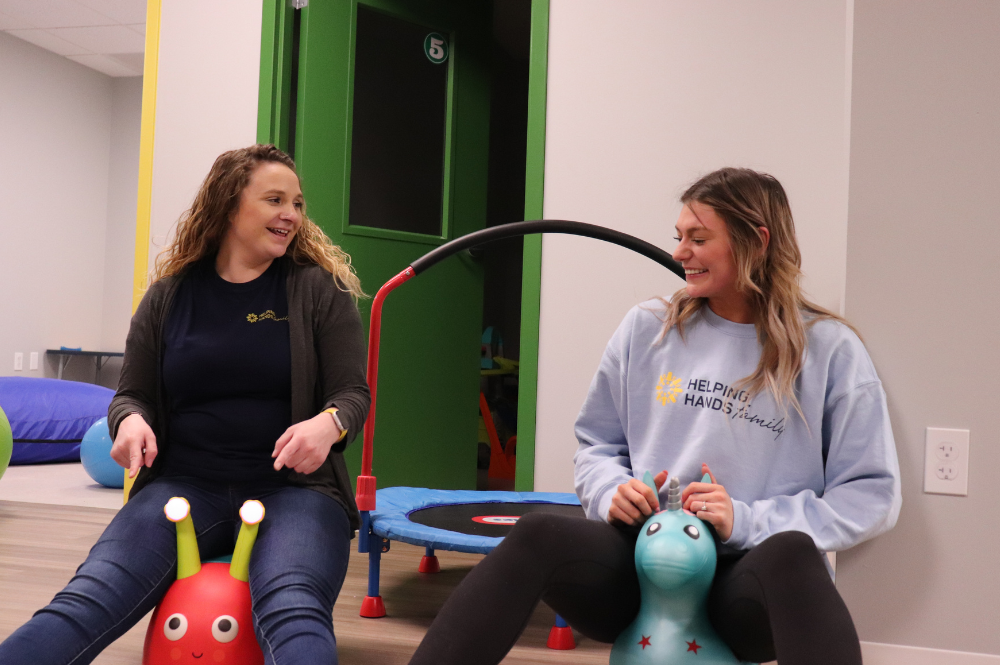
Registered Behavior Technicians (RBTs) are a crucial part of the client’s therapy team because of their ability to make progress with their behavior reduction and skill acquisition goals. Collecting accurate data is an important responsibility of an RBT because data allows the treatment team to track a client’s progress and identify where modifications in the treatment plan are necessary. Effective treatment plan development and treatment implementation are accomplished through each RBT’s accurate data collection, anecdotal notes, and session insights.
How do RBTs collect the necessary data to measure a client’s progress through treatment? At Helping Hands Family, every RBT is provided with tablets, which are utilized for data collection in real-time. Utilizing tablets increases data collection accuracy and reduces the time spent finding the correct target. Clients are assigned a Learning Tree created by their BCBA. That BCBA provides each client’s RBT access to the goals, targets, and protocols on their tablet, which can then be accessed through the simple click of a button!
The Importance of Progress Tracking
In ABA therapy, it is important to monitor each child’s milestones. Meaningful adjustments are made from noticeable changes in data. When trends are positive, progress can be celebrated. Data also helps to avoid potential roadblocks by leading to treatment plan refinement. Below are some important reasons data and progress should be tracked daily.
1. See the Progress Made by a Client
By using tablets for data collection, our HHF clinical teams can graph the data at the end of each session, which helps them identify trends. When a child’s data communicate skill acquisition goals are on an upward trend, the team knows progress is being made, which means it’s time to celebrate those successes!
2. Determine if a Modification is Needed in a Treatment Plan
Like tracking tangible activity developments, begin to record how your child responds and behaves in situations that may have previously caused frustration or other problematic behaviors. Again, you can refer to your child’s initial assessment documentation for comparison, then take note of any positive changes that have occurred. Perhaps your child now responds with an appropriate “yes” or “no” answer when asked to share, instead of becoming upset or frustrated. These positive changes are important, and you should keep track of these progressive moments as they occur!
3. Indicate a Skill Can Be Advanced to a Different Environment
Once the team identifies progress is being made, the next step is to advance that skill to different people and environments. This allows the client to continue growing by applying skills to various everyday situations. Increasing the generalization of skills helps our clients to access less restrictive environments and continue to increase their quality of life, which is both exciting and rewarding for our clinical staff!
If you are looking for a fulfilling career that provides the opportunity to help others experience meaningful growth, a career as an RBT checks that box! Check out our autism jobs in CT or many of the other states we have clinics in. With ABA home services in or near Stamford, CT, among many other locations, there may be an opportunity near you to start in this rewarding field!





